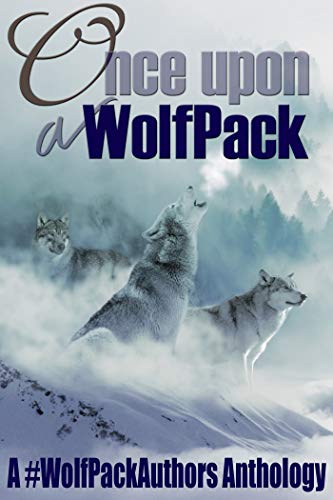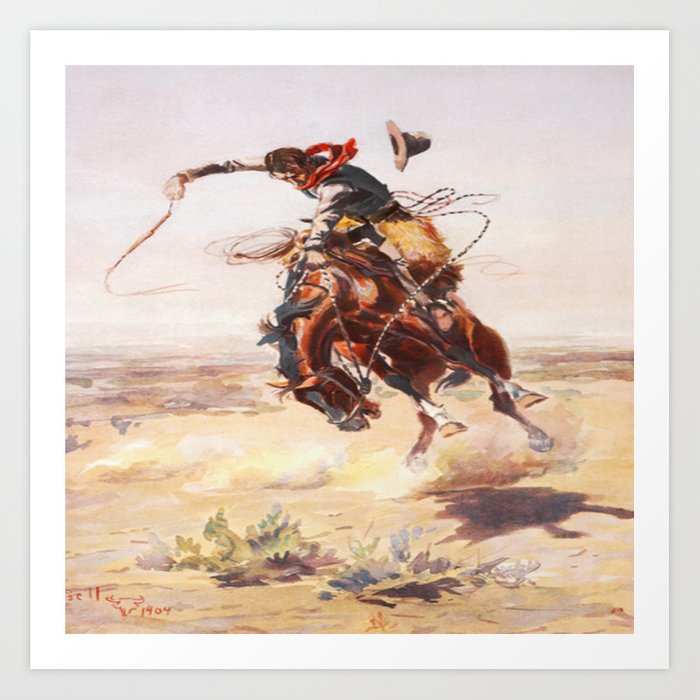
Cooperatives have been around for quite awhile. They began in England in 1844 in an attempt to allow small producers of quality goods to compete with the large factories that increasingly churned out low-quality goods in advance.
I’ve been involved with food cooperatives since the 1980s. Initially, it was the search for fresh and affordable spices and herbs that drew me to the local food co-op. From there, my interest in sustainable agriculture and organic production mushroomed.
Cooperatives formed to solve common problems by the combined action of the members. They also empowered the members through shared ownership and democratic control. Something very much missing even in today’s business world. Everyone is equal in a cooperative.
With the rise of the independent author/publisher movement (indies), co-ops have begun to form as authors seek to tackle the difficult aspects of publishing and marketing.
The #WolfPackAuthors is a loose cooperative of writers who hang out on Twitter. I’m very pleased to be a part of the group.
To provide mutual support and to take a more creative approach to marketing each other’s books is the group’s goal, rather than simply re-tweeting each other’s books.
One of those marketing options was to put together a short story anthology to showcase the work of the #WolfPackAuthors. The result is
Once Upon a WolfPack: A #WolfPackAuthors anthology
Seventeen writers. Seventeen stories and poems. The book is currently available on pre-order for $2.99 and will see publication on 19 May 2019.
And in the true spirit of cooperation, all profits will go to Lockwood Animal Rescue Center. The center is focused on protecting wolves and helping military veterans with rehabilitation and integration.
We feel Once Upon a WolfPack will not only introduce you to our writing, but the book will help wolves and vets survive in what is too often our harsh modern world.
We give and you give. And many, many people and wolves benefit.
Travel to distant and magical lands. For a time be a superhero, or a creature of the night. Be a private detective and solve a crime, right a wrong. In Once Upon a WolfPack, you’ll have 17 chances to travel and live a life different from your own.
To whet your appetite, here is an extract from my contribution to the collection. Enjoy!
Mrs Solberg’s Problem
A Justinia Wright Private Investigator Mystery
by CW Hawes
She’d made the appointment for ten in the morning. The oversized oxblood wingback made her look small, even though she was of average height and build for a woman.
Our potential client was practically dressed for a December day in Minnesota, which unfortunately didn’t do anything to improve her somewhat drab middle-aged appearance.
My sister, the ace Minneapolis private detective Justinia Wright, wasn’t interested in the case when I told her about it yesterday. But then she’s rarely interested in any case. She doesn’t like to work. She’d rather play the piano or paint. Unfortunately, those two activities don’t pay my paycheck or that of my wife, Bea, who is the office receptionist, as well as being Tina’s Minordomo. I being the Majordomo, as well as Tina’s assistant.
And since my sister doesn’t like to work, one of my duties is to prod and cajole her into doing so. Of course, I get a ton of grief for doing my job. But that goes with the territory.
Consequently, I went ahead and booked the appointment. I figured once Mrs Solberg was in the office, the odds of Tina taking the case would greatly improve.
The boss looked at our potential client. From where I was sitting at my desk, she was wringing the life out of her gloves.
“There’s no need to be nervous, Mrs Solberg. It is Missus, isn’t it?” Tina said.
“Yes. Yes, it is. I’m married.”
Her voice was actually quite pleasant. It had a bit of depth to it.
Tina leaned back in her chair and steepled her long fingers. “I take it you are having marriage problems.”
“Well, yes and no.”
A frown crossed Tina’s face. “Come now, Mrs Solberg. You either are or you aren’t. If your home was a citadel of marital bliss, you wouldn’t be here. So what is the nature of your marital woes?”
“There’s a woman at my husband’s office…”
Tina finished the sentence for her. “And he’s spending entirely too much time with her for your liking. She’s also younger than you. Probably much younger. And you want me to do something about it.”
“Uh, yes. Yes, that’s right. How did you know?”
“It’s my job to know things. So I do.”
“Oh. I see.”
Although by the look on her face, I wasn’t sure she saw at all.
Mrs Solberg paused a moment and then her face brightened. “You can help me?”
“I can. What do you want me to do?”
“I don’t know. That’s the thing. I’ve been a good wife. I’ve seen to his, my husband’s, every need. I know that sounds old-fashioned, but I’m a traditional wife and I don’t think I need to apologize for that.”
Tina made a sound that could have been taken for concurrence, and Mrs Solberg went on. “I raised our children and was always there for them. And I’ve always been there for Dolph. That’s my husband’s name. Dolph. It’s Swedish and means Noble Wolf.”
“Interesting,” Tina said.
“I suppose so. Only now he might not be as honest as I thought. Anyway, I’ve always been there for him, and it’s just not fair that now we have some time—”
Tina interrupted. “The children are no longer at home?”
Mrs Solberg nodded. A tissue was dabbing at her eyes and nose. After a moment, she continued, “Now that we have time to do things together, he’s either too tired, or playing golf, or with his friends watching football, or out with this minx.”
Tina sat up and crossed her legs. “Does the minx have a name?”
“Lacey Nystrom.”
“Are they sleeping together?”
“Uh, no, I don’t think so. Dolph says she’s this poor young woman without much money and in a bad situation at home and he’s just being friendly. It’s nothing serious, he says. Just friends and I shouldn’t worry.”
“And you believe him?”
Mrs Solberg thought for a moment and then nodded her head. “Yes. I don’t think he’s had sex with her.”
“But you are feeling cheated. The kids are gone, you’ve paid your dues, and now you want to live a little.”
“Yes. That’s it. Can you fix this for me? Can you get rid of this minx? I’m probably being unfair, to call her a minx, but that is how I feel. She’s taking my husband from me and it’s not fair what she’s doing, or that he’s letting her.”
Tina nodded her head to show she understood Mrs Solberg’s feelings and leaned back in her chair. She eyed the humidor on her desk and then closed her eyes, steepled fingers touching her lips. After a quarter-minute passed, she opened her eyes and sat up.
“Yes, I can fix this for you. My fee for doing so is twenty-five thousand dollars.”
“What? You can’t be serious?”
“Oh, I very much am, Mrs Solberg.”
“But, but…”
“You think it’s a lot of money?”
Mrs Solberg nodded her head.
Tina continued, “I suppose it is. However, I happen to know you can probably afford it. You live over in Kenwood, which is more expensive than my neighborhood. Which as you know is second only to yours. I also know your husband is a vice-president at Borger, Inc. And makes a very decent salary.”
“How do you know this?”
“As I said earlier, it’s my job to know things. And I do. The decision is yours. However, I ask you, do you like feeling you are second fiddle in your husband’s affections? I’m assuming you love him and that’s why you’re here.”
“Yes. Yes, I do. We were good together when we were young.” She took in a deep breath and it came out a sigh. “But then along came the children and more responsibilities at work, and promotions, and, well, now I’m looking at fifty and Dolph is in his fifties and, well, I just want us to have a chance to live a little before we’re too old. I think we’re still good together.”
“I understand,” Tina said. “To get what you want, with my help, will cost you twenty-five thousand. It’s your happiness, Mrs Solberg. Not mine. What’s your decision?”
“You really think you can help me?”
“Yes.”
Our potential client stared at her purse. Perhaps somewhere in its depths there was an answer, and, after a significant amount of time had passed, she asked, “Is a check alright?”
I guess there was an answer lying there in the depths of her handbag.
“A check is fine, Mrs Solberg.” Tina turned to me. “Harry, a contract.”
I printed off a contract, filled in the blanks, and gave it to our client for her to sign. I’ll have to find out the brand of that purse. Could probably make a fortune with it. After she read and signed the contract, I made a copy for her.
“Tomorrow, I will send you instructions by email,” Tina said. “You must follow them to the letter. Do you understand?”
“Yes.”
Mrs Solberg stood and handed a check to Tina, who stood and took it from her. The two women shook hands, and then I escorted our new client to the front door and out into the cold Minnesota winter.
On the way back to the office, Bea asked if Tina had taken the case.
“Yep. Have no idea why. She didn’t even try to charge her some ridiculous fee. It’s an odd case, though, and maybe that’s why. Something of a challenge. Something out of the ordinary. I’ll tell you about it later.”
I went on into the Inner Sanctum and sat at my desk. Tina had lit a cigar and poured herself a glass of madeira. She took a sip of wine and then puffed on her cigar, before speaking.
“Since you wanted this case so badly, here are your instructions.”
I gave her a look.
“What? You didn’t think all you were going to do was badger me, did you?”
I sighed. “I suppose not.”
“Good. Get your notebook and pen.”
Continued in Once Upon a WolfPack
Comments are always welcome! And until next time, happy reading!
Share This!



